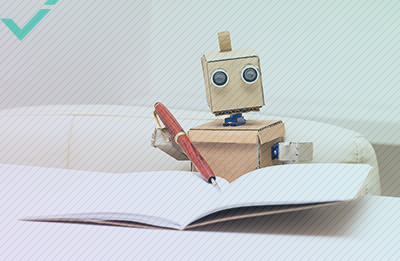The internet is a paradise for global ventures. You can reach the other side of the world in the blink of an eye, which is fantastic in many ways. This widens a marketer’s audience tenfold. Unfortunately, we tend to take speaking English for granted. This doesn’t just go for smaller businesses, either.
As a rule, if you want the best results in taking your business global, you should think about translation. However, even if you have, it isn’t always enough. After all, translation is a tricky business, and there are plenty of companies who have learned that the hard way.
Let’s have a look at some translation fails that left a mark in the history of global marketing.
1. KFC

In the 1987, Colonel Sanders and his yummy fried chicken decided to enter the Chinese market. Using the same slogan—“It’s Finger Lickin’ Good”—since the ’50s, KFC was ready to take China by storm.
Unfortunately, in Mandarin—spoken by 73% of the Chinese population—“Finger Lickin’ Good” was translated to “Eat Your Fingers Off”.
As big of a fail as this was, the brand was small enough over there to recover. In fact, these days, it’s China’s top fast-food restaurant with more than 5000 restaurants country-wide.
2. MERCEDES-BENZ

Would you buy new wheels if the brand’s name accidentally forewent safety regulations? Probably not.
Wanting to stand out from its western competitors in China, the luxury auto brand shortened its name to “Bensi”. As sharp as it sounded, “bensi” already has its place in the eastern lexicon.
Indeed, in Chinese, “bensi” means “rush to die”. Not exactly what you’d want to see when buying a new car.
Once the brand realised the error of their ways—with thanks to local marketing experts—they rebranded to “Benchi”. This means “running as quickly as flying”.
3. IKEA

Cultural differences are rife the world over, even between Europe and the United States. So it comes as no surprise that Scandi furniture magnate, IKEA, found trouble in Thailand.
Opening the doors of its first Thai store in November 2011, brand experts put four years of research into product names and their translations. What they found was hilariously scandalous.
Two of their popular pieces translated into saucy Thai phrases. Their Redalen bed—named after a Norwegian town—resembles a Thai phrase for getting to third base. On the other hand, their Jättebra plant pot denotes a slang term for sex.
What’s Thai for “scandalous”?
4. CLAIROL

In 2006, Clairol hit the beauty world by storm with their brand new curling iron, the Mist Stick. When they took the product to Germany, it was more of a missed one.
In demand across the world, the fancy vapour wand was almost as popular as fidget spinners. However, the Germans were less than impressed.
In German, “mist” means excrement or manure. Therefore, Germans had no interest in buying a “manure stick”. Not only that, but Mist Stick also sounds like “Miststück”, a term used as an insult.
This huge marketing fail centred around translation, with Clairol foregoing research. In other words, it could’ve been avoided before the mist hit the fan.
5. APPLE

Apple is one of the biggest companies in the world, but they’re not immune to marketing blunders. In light of the iPhone 7’s release, they kicked off their campaign with the slogan, “This is 7”.
Pretty catchy.
That is, except for Cantonese, where “seven” is pronounced “tsat”; slang for male genitalia. Although used teasingly by Hongkongers, it’s not something you want in your ad campaign.
As a result, Apple altered its translations to try and avoid gaffes.


